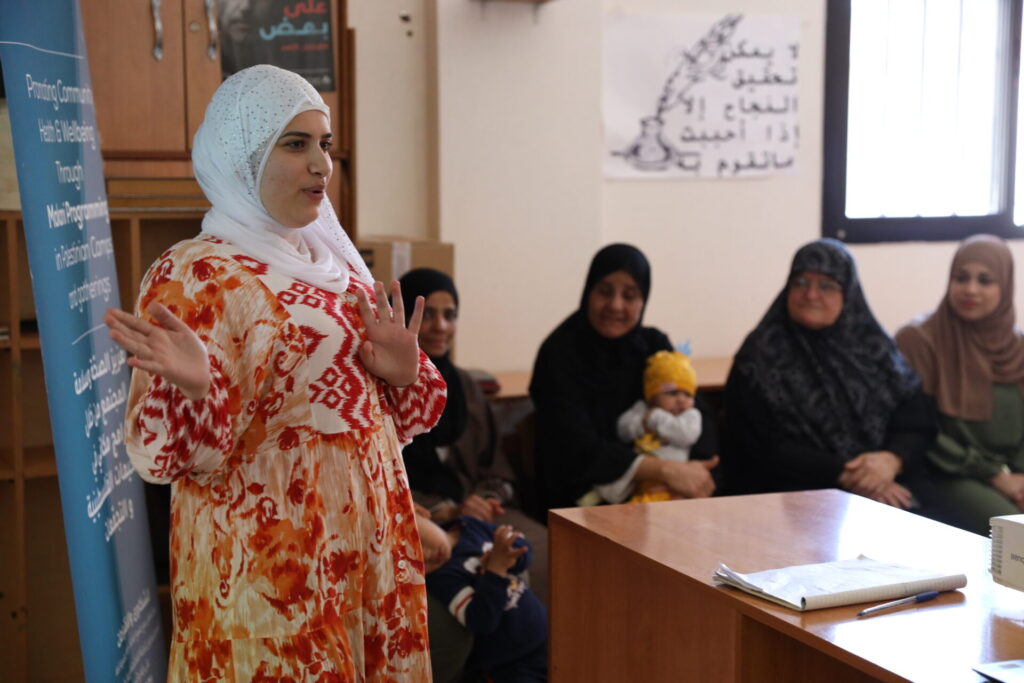Feb, 2011
Breast cancer is the most common cancer in Jordan and the most common of all diseases affecting women.
In order to raise awareness of the disease and to encourage early detection, Anera has partnered with the Jordan Breast Cancer Program (JBCP) to establish a system of home visits reaching out to thousands of women, aged 40-65, who live in the Wehdat Refugee Camp. The program’s objectives are to break down barriers, spread comprehensive knowledge and save lives.
“This health program is the first in Wehdat and, with its sustainable approach, we’re cooperating with women’s centers from the camp to conduct lectures, training and other activities to raise public awareness,” says JBCP Acting Senior Health Communication Officer Nisreen Qatamesh.
In the underprivileged Wehdat Refugee Camp, there are an estimated 88,000 women over 20 years of age and the majority are either uninformed or reluctant to seek a diagnosis or help for breast cancer. One major problem is the lack of available resources pertaining to breast cancer and early detection. Another problem is the surrounding society’s attitude towards cancer in general.
“The societal factors that prevent women from seeking help are ignorance and faulty convictions, fear of their husbands or potentially having their breasts removed, or fear of ostracism or ending up unmarried or divorced, if they were ever diagnosed with breast cancer,” explains Qatamesh.
To make matters worse, the camp’s one health center – which serves 300,000 – does not provide mammography services. And, because of the poverty affecting the community, women often cannot afford to leave the camp to visit a health center that provides the services they need.
Through raising awareness, tackling stigma, reinforcing implementation, and providing advice, Anera and JBCP are encouraging women in Wehdat to conduct self-breast exams and arrange professional exams.
In addition to developing toolkits and other materials, Anera and JBCP are arranging for 25 community workers from community-based organizations to undergo a three-day training on communication skills, planning home visits and other important issues they must know before conducting home visits. Based on the training results and trainees’ performance, five women will be selected as program outreach workers. There will also be training of 30 care providers, and four mammogram and radiologists.
Approximately 2,400 home visits will be conducted with 500 women referred to free-of-charge mammography screening at Al-Hilal Hospital in Eastern Amman, which offers a comfortable atmosphere and experienced and well-trained staff.
With its sustainable approach, the Breast Cancer Home Visit Outreach program has the great potential of serving as a model for replication in other refugee camps in Jordan, thus helping save the lives of thousands of impoverished women from this widespread disease.


